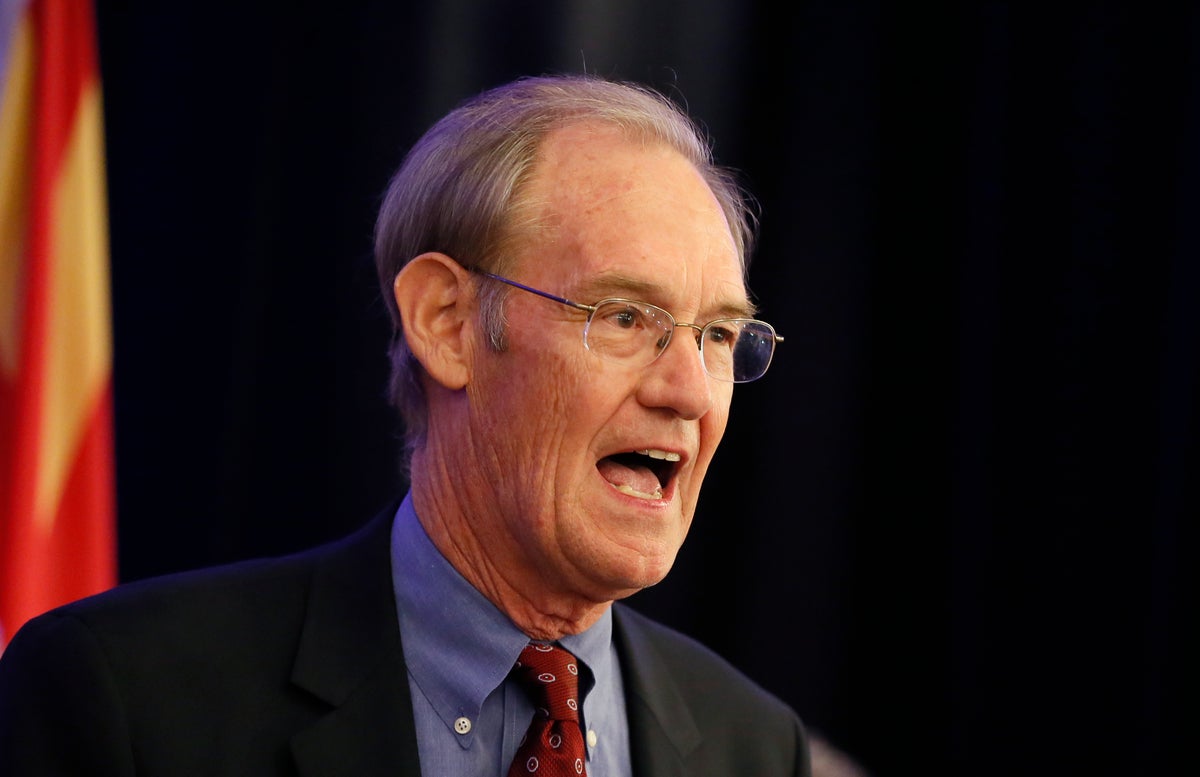
The Arizona Supreme Court will review a lower court’s decision to keep a voter initiative rolling back Republican-backed election law changes and expanding voting access on the ballot and could decide to block it after all.
Chief Justice Robert Brutinel said in a late Thursday order that the court was unable to determine exactly how Maricopa County Superior Court Judge Joseph Mikitish came to his determination that backers had collected enough valid signatures for the Free and Fair Elections Act to appear on the November ballot.
They ordered him to provide details of his math and the legal basis for his conclusions by midday Friday. The high court is under a tight deadline to act, since the earliest county ballot printing deadline passed Thursday.
It's final decision on the fate of the measure could come at any time after attorneys for the initiative and challengers respond at 1 p.m.
“Look, we have enough signatures,” said Stacy Pearson, spokeswoman for the initiative backers, said Friday. “It's a matter of showing the court in a way that they can understand it.”
The high court has already ruled in challenges to two other initiatives, keeping them on the November ballot. The justices said Wednesday that business groups that challenged a proposal requiring greater transparency for political spending and boosting the amount of assets shielded from creditors failed to knock off enough signatures.
They also ruled in many of the signature challenges levied against the election measure, but sent it back to Mikitish to do the final math. He ruled Thursday afternoon that the measure had barely enough valid signatures.
Republican Gov, Doug Ducey and the GOP leaders of the House and Senate had urged the high court to reject all three measures.
Mikitish has presided over three weeks of hearings in a case filed by a pro-business group that challenged many of the nearly 400,000 signatures the initiative backers filed. After lawyers for the Arizona Free Enterprise Club succeeded in knocking off nearly 96,000 signatures, and a county review to determine if the signatures were valid kicked of nearly 64,000 more, it was left with just 2,281 more than the required 237,645 signatures needed to make the ballot.
The Free and Fair Elections measure changes a slew of election laws. It specifically blocks the Legislature from overturning the results of presidential elections, an avenue some Republicans explored after former President Donald Trump’s loss in the state in 2020.
It also guarantees ballot privacy and bars handing election materials or ballots over to outside groups like the state Senate did after 2020, expands voting access, mandates that all voters can go to any polling site, extends early voting and limits lobbyists’ ability to wine and dine lawmakers.
“The single most important component in this initiative is that it prevents the Legislature from overturning the results of an election,” Pearson said Thursday. “And, it prevents Cyber Ninjas in green shirts from spinning around ballots on Lazy Susan tables again, and making a mockery of Arizona’s extraordinarily safe and secure election process.”
The measure also would eliminate the “strict compliance” legal standard that led Mikitish to disqualify many of the petition sheets. The GOP-controlled Legislature required that standard for initiatives in 2017, making it easier to throw them out for relatively minor paperwork errors.
Scot Mussi, president of the Arizona Free Enterprise Club, last week called the election law proposal "a 25-page measure that makes over 60 different changes to Arizona law.”
“Many of these changes and radical reforms they are doing are not supported, and they are trying to sneak in their confusing measure and see if they can get it passed,” Mussi said.
The Free Enterprise Club challenged tens of thousands of signatures, many for exceptionally minor issues.
For instance, 7,000 signatures were challenged because a volunteer petition circulator mistakenly checked a box that indicated they were paid circulators.







